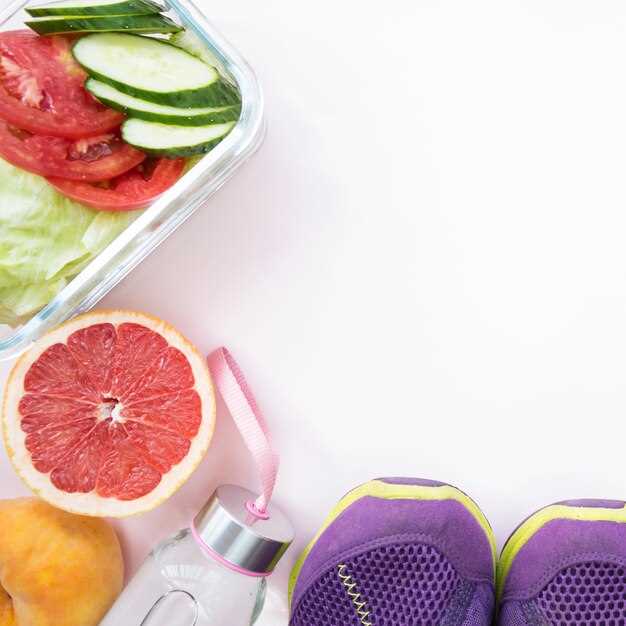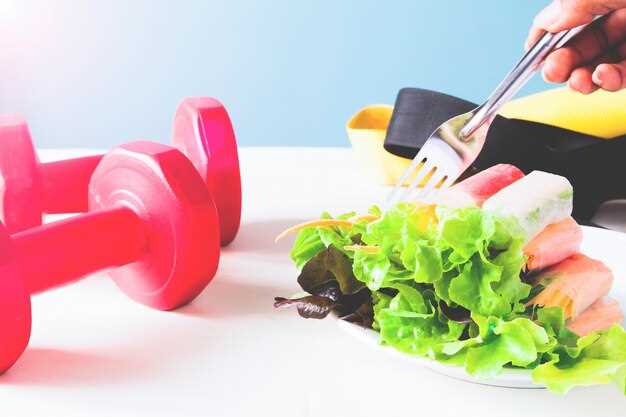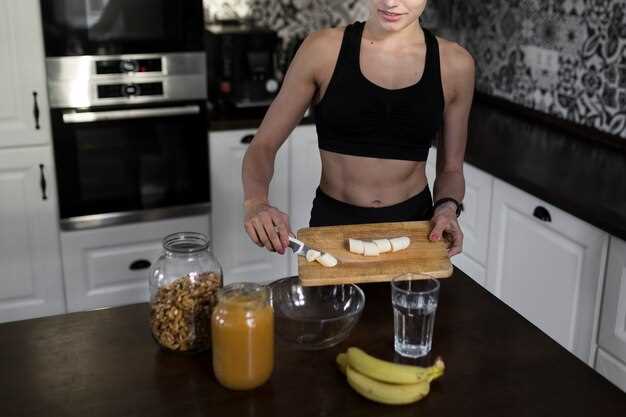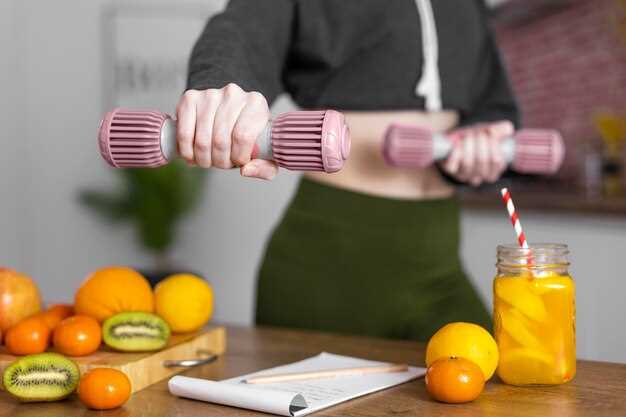Fuel your performance with a meal rich in carbohydrates and lean protein about 3 hours before competition. Such a combination provides the necessary energy and aids in muscle recovery, setting the stage for peak performance. Consider a bowl of whole grain pasta topped with grilled chicken and a side of steamed vegetables. This meal offers a balance of complex carbs for sustained energy and protein for muscle support.
Avoid heavy, greasy foods right before your event. Meals that are too high in fat can slow digestion and leave you feeling sluggish. Instead, consider snacks like a banana or a yogurt with honey as a quick boost closer to game time. These options are easy to digest and supply a rapid source of energy when it’s most needed.
Hydration plays a significant role in your pre-game routine. Drink water consistently leading up to your event and consider a sports drink if you’re participating in intense activity for over an hour. Electrolytes in these beverages help maintain performance levels during high-stakes moments.
Every athlete is unique, so experiment with different foods to find what works best for you. Pay attention to how specific meals affect your energy levels and performance. Documenting this can help fine-tune your pre-game nutrition strategy and optimize your game-day experience.
Understanding the Importance of Pre-Game Nutrition

Prioritize consuming a balanced meal 2-4 hours before a game to fuel your performance. Focus on complex carbohydrates, lean proteins, and healthy fats. For instance, opt for whole grain pasta paired with grilled chicken and a side of vegetables. This combination provides sustained energy and aids muscle repair.
Timing Matters
Timing your meal not only enhances energy levels but also minimizes discomfort during play. Eating too close to competition can lead to digestive issues. Allowing adequate time for digestion helps maximize your performance.
Selecting the Right Foods
Incorporate foods rich in carbohydrates like brown rice, quinoa, or sweet potatoes for optimal energy. Include proteins such as turkey or fish to support muscle function. Hydration plays a key role too; drink water or an electrolyte beverage to maintain fluid balance. Avoid high-fat and high-fiber foods right before the game, as they may slow digestion and impact performance.
Preparing your body with the right pre-game nutrition can significantly contribute to your athletic potential and overall game-day experience.
Selecting the Right Carbohydrates for Energy

Focus on complex carbohydrates for sustained energy. Foods like whole grains, legumes, and vegetables break down slowly, providing a steady release of glucose into the bloodstream. This steadiness supports endurance during training and competition.
Top Choices for Complex Carbohydrates
- Brown Rice: A great side dish, brown rice supplies energy without causing spikes in blood sugar.
- Quinoa: Rich in protein and fiber, quinoa offers both carbohydrates and amino acids, making it a complete food option.
- Oats: Perfect for breakfast, oats help maintain energy levels throughout the morning.
- Sweet Potatoes: Packed with nutrients, they provide carbohydrates along with vitamins A and C.
Timing Your Intake
Consume these carbohydrates 2-4 hours before your activity for optimal energy levels. Balanced meals will enhance performance and prevent fatigue. Pair carbs with a moderate amount of protein and healthy fats to maximize benefits.
For a pre-game boost, consider quick-digesting options like bananas or toast with jam if you have less time before your event. These can deliver immediate energy while preventing hunger.
Protein Sources for Muscle Recovery Before Competition

Opt for lean meats like chicken or turkey as pre-game protein sources. They provide high-quality protein with minimal fat, supporting muscle repair and growth. A grilled chicken breast offers around 26 grams of protein in just 3 ounces, making it a solid choice.
Fish, especially salmon and tuna, are excellent options. Salmon not only delivers protein, approximately 22 grams per 3 ounces, but also contains omega-3 fatty acids, which can reduce muscle soreness. Tuna is rich in protein and is convenient as canned options are widely available and ready to eat.
Dairy products like Greek yogurt or cottage cheese also support protein needs. A typical serving of Greek yogurt contains about 15-20 grams of protein and provides probiotics that aid digestion. Combine it with fruits for a quick, nutrient-rich snack.
Plant-based proteins like lentils and chickpeas can be effective as well. One cup of cooked lentils has about 18 grams of protein and is packed with fiber, which aids in satiety. Chickpeas also work well, providing 15 grams per cup, making them versatile for snacks or salads.
Protein shakes can be useful in a pinch. Choose a high-quality whey or plant-based protein powder. A standard scoop delivers around 20-25 grams of protein. Mix it with water or milk for an easily digestible option before competition.
Eggs are another fantastic source. Each egg contains about 6 grams of protein and provides essential amino acids. Enjoy them boiled, scrambled, or as an omelet for a hearty pre-game meal.
Pay attention to timing as well; consume these protein sources approximately 1-2 hours before competition to optimize muscle recovery without feeling sluggish. Tailoring your protein intake to your specific sport and competition schedule will enhance your performance and recovery.
Hydration Strategies Leading Up to Game Time

Drink water consistently throughout the day leading up to the game. Aim for at least half your body weight in ounces of water daily. For example, if you weigh 150 pounds, consume 75 ounces of water.
Prioritize electrolyte-rich beverages about 1-2 hours before the game, especially if you sweat heavily during practice or workouts. Sports drinks can replenish lost electrolytes, but opt for low-sugar options to avoid unnecessary sugar spikes.
Start hydrating at least 24 hours before the game. During this period, monitor your urine color; it should be light yellow, indicating proper hydration levels.
In the hour leading up to the game, drink around 8-10 ounces of water. This helps maintain hydration without causing discomfort during physical activity.
Try incorporating hydrating foods into your pre-game meal, such as watermelon or oranges. These fruits provide additional fluids and essential nutrients.
Have a plan to hydrate during breaks in play. Carry a water bottle to stay on top of your fluid intake during the game.
For outdoor events in hot weather, increase your fluid intake even further, as higher temperatures can lead to quicker dehydration.
Timing Your Pre-Game Meal for Maximum Impact
Consume your pre-game meal 3 to 4 hours before your event to ensure optimal digestion and energy levels. This timeframe allows your body to process nutrients effectively, providing sustained energy for competition.
Your meal should focus on a balance of carbohydrates, proteins, and fats. Incorporate options such as:
- Whole grain pasta with lean chicken and vegetables.
- Quinoa salad topped with beans and avocado.
- Oatmeal with fruits and a drizzle of honey.
For those with less time, a more straightforward snack 30 to 60 minutes prior is beneficial. Aim for easily digestible carbohydrates and a small amount of protein, such as:
- A banana with peanut butter.
- A granola bar with yogurt.
- A smoothie made with fruit and protein powder.
Monitor how different timing affects your performance. Keep a journal to record your meals, timing, and energy levels during practice or games. Adjust portions and timing based on your observations to find what works best for you.
Stay hydrated before the game; drink water leading up to your event but avoid excessive intake right before competing to prevent discomfort. Balance is key for optimal athletic performance, so test various meal combinations and timings in training before implementing them in crucial matches. Each athlete’s needs vary, so personalize your approach for the best outcomes.
Best Meal Options for Young Athletes
Whole grain pasta topped with lean protein, such as grilled chicken or turkey, provides a fantastic pre-game meal. This combination delivers complex carbohydrates for sustained energy and protein for muscle support. Add a side of steamed vegetables to enhance nutrient intake and hydration just before the game.
Snacks to Fuel Performance
Energy bars with natural ingredients or mixed nuts serve as excellent snack options for young athletes. They are portable and provide a quick source of energy. Look for bars that contain whole grains, nuts, and dried fruits to ensure balanced nutrition and avoid sugar spikes.
Hydration Matters
Incorporate water-rich fruits like oranges or watermelon for hydration. They not only help maintain fluid levels but also offer vitamins and minerals crucial for performance. Combining these fruits with a small handful of trail mix can create a perfect snack before a match.
Avoiding Foods That Can Distract Performance
Focus on meals that maintain energy levels and avoid foods that can hinder performance. Steering clear of certain options can enhance concentration and physical abilities during play.
Foods to Avoid
- High Sugar Snacks: These can cause energy spikes followed by crashes, leading to reduced focus.
- Heavy Meals: Foods high in fat can result in sluggishness and discomfort, making movement more difficult.
- Dairy Products: For some athletes, dairy can lead to gastrointestinal discomfort, which distracts from performance.
- Processed Foods: These often contain additives and preservatives that can negatively affect your mood and energy levels.
- Caffeinated Drinks: While moderate caffeine can boost alertness, excessive intake may lead to jitters and anxiety.
Timing Matters
Pay attention to meal timing. Eating heavy or problematic foods too close to game time can lead to discomfort. Aim to have your last major meal at least three hours before an event. Light snacks, if needed, should be low in sugar and fat to keep energy steady.
Prioritize nutrient-dense foods that sustain energy without overwhelming the system. Make informed choices to stay sharp on the field.
Sample Pre-Game Meal Plans for Various Sports
Choose a meal plan that suits your sport and energy needs. Proper nourishment enhances performance and recovery.
Soccer
For soccer players, focus on carbohydrates to fuel intense activity.
| Time | Meal |
|---|---|
| 3 hours before | Whole grain pasta with marinara sauce, grilled chicken, and a side of steamed broccoli. |
| 1 hour before | Banana and a granola bar. |
Basketball
Basketball players benefit from a good mix of carbohydrates and protein.
| Time | Meal |
|---|---|
| 3 hours before | Brown rice, baked sweet potato, and grilled salmon, accompanied by spinach salad. |
| 1 hour before | Greek yogurt with honey and mixed berries. |
Swimming
Swimmers need easily digestible foods for quick energy release.
| Time | Meal |
|---|---|
| 3 hours before | Oatmeal topped with sliced apple and cinnamon, with a side of scrambled eggs. |
| 1 hour before | Energy gel or a piece of toast with almond butter. |
Mix and match these options based on personal preferences and specific sport requirements, ensuring a balance of macronutrients before competition.
Customizing Meals for Different Age Groups
Tailor pre-game meals to match the nutritional needs of different age groups for optimal performance. For young athletes aged 6-12, focus on whole grains, fruits, and lean proteins. A meal might include oatmeal topped with bananas and a side of yogurt. This combination provides the energy needed for play without causing digestive issues.
Teen Athletes
Teens aged 13-18 face unique demands due to growth spurts and increased training intensity. Incorporate complex carbohydrates like brown rice or quinoa, paired with chicken or fish, and plenty of vegetables. A sweet potato with grilled salmon and steamed broccoli works well. This meal supplies sustained energy and supports muscle recovery.
Adult Athletes
Adults should prioritize protein intake while balancing carbohydrates and healthy fats. Opt for a meal that includes chicken breast or tofu, versatile grains, and a substantial serving of greens. Think about a stir-fry with brown rice, assorted vegetables, and a protein source. Timing matters too; consume this meal 2-3 hours before competition for optimal digestion.
Adjust fluid intake for all age groups as well. Encourage hydration with water or electrolyte drinks, especially for teens and adults who may sweat more. Keeping snacks, like a banana or a handful of nuts, on hand can help sustain energy when needed.
Adapting Meals for Individual Dietary Restrictions
Customize your pre-game meals by considering specific dietary restrictions. This ensures that athletes receive the necessary nutrients without compromising their health or performance.
Common Dietary Restrictions
- Gluten-Free: Choose quinoa, rice, or gluten-free pasta as bases. Pair them with lean proteins like chicken or turkey and an assortment of vegetables.
- Vegetarian: Incorporate legumes, nuts, and seeds to supply protein. Meals can include black bean tacos with salsa and avocado or a chickpea salad with mixed greens.
- Vegan: Focus on plant-based proteins like tofu, tempeh, and lentils. A stir-fry with tofu, assorted veggies, and brown rice offers a balanced option.
- Dairy-Free: Use almond or coconut milk in smoothies or as a base for oatmeal. Explore dairy-free yogurt topped with fruits and seeds for breakfast.
- Low-FODMAP: Select vegetables like carrots and zucchini and avoid garlic and onions. Quinoa salads with grilled chicken and safe veggies work well.
Meal Timing and Composition
- Consume meals 3-4 hours before the event for optimal digestion and energy utilization.
- Focus on carbs for energy, proteins for muscle repair, and healthy fats in moderation.
- Stay hydrated; consider electrolyte-rich drinks if the sport involves significant sweat loss.
Maintain a variety of options to meet diverse dietary needs. Test meals during training to identify preferences and avoid any surprises on game day.
Portion Sizes: How Much to Eat Before Competing
Consume a meal containing 1-3 grams of carbohydrates per kilogram of body weight about 3-4 hours before competition. For a 70 kg athlete, this equates to 70-210 grams of carbohydrates. Focus on easily digestible sources like pasta, rice, or bread to avoid gastrointestinal discomfort.
Include moderate protein intake, approximately 20-30 grams, to support muscle function without causing heaviness. Opt for lean meats, yogurt, or plant-based proteins. Keep the fat content low, ideally under 10 grams, to facilitate quick digestion.
| Meal Timing | Macronutrient Breakdown | Example Foods |
|---|---|---|
| 3-4 hours before | 70-210 g carbs, 20-30 g protein, <10 g fat | Pasta with lean chicken, rice with fish |
If you’re eating closer to competition time, around 30-60 minutes prior, scale back the meal to a snack with 0.5-1 gram of carbohydrates per kilogram. Focus on quick-digesting options like a banana or a sports drink. Keep protein minimal or negligible to avoid sluggishness.
Tailor your portions to personal needs and body response. Testing different foods and quantities during training will help find the optimal balance for peak performance on competition day.
The Role of Snacks in Pre-Game Preparation
Incorporating snacks into your pre-game routine can significantly enhance your performance. Choose snacks rich in carbohydrates and moderate in protein to provide the energy needed for optimal output. A banana paired with a spoonful of almond butter offers a quick fuel source along with healthy fats and protein. Alternatively, a whole grain wrap with turkey and veggies primes your body for sustained energy release.
Timing and Portioning
Aim to consume snacks 30 to 60 minutes before your event. This timing allows your body to digest and convert the food into accessible energy without causing discomfort. Portion control is crucial; a handful of nuts or a small yogurt can prevent feeling sluggish while still providing the needed nutrients. Avoid heavy and greasy options that could upset your stomach during competition.
Consider simple choices like energy bars with whole ingredients, Greek yogurt with fruit, or rice cakes topped with nut butter. These snacks are not only easy to prepare but also portable, making them convenient for game days. Hydration plays a key role as well, so pair your snacks with water or an electrolyte drink to maintain hydration levels leading into the competition.
Video:
Unlocking Athletic Potential: Why Should You Eat a Pre-Game Meal?
Unlocking Athletic Potential: Why Should You Eat a Pre-Game Meal? by Eat 2 Win 384 views 6 years ago 51 seconds
Q&A:
What types of foods should be included in a pre-game meal for athletes?
A pre-game meal should focus on carbohydrates, proteins, and healthy fats. Carbohydrates are essential for energy, so foods like pasta, rice, and whole grain bread are great options. Lean proteins such as chicken, turkey, or fish help with muscle repair, while healthy fats from sources like avocados or nuts can provide sustained energy. It’s also a good idea to include fruits or vegetables for added vitamins and minerals, which support overall health and performance.
How long before a game should an athlete eat their pre-game meal?
Generally, athletes should eat their pre-game meal about 3 to 4 hours before the game. This timing allows for proper digestion and nutrient absorption, which helps maximize energy levels during competition. Eating too close to game time can lead to discomfort and decreased performance, so it’s advisable to plan meals accordingly.
Are there any specific meals recommended for different types of sports?
Yes, different sports may require tailored pre-game meals. For endurance sports like marathon running, meals rich in carbohydrates such as oatmeal or whole grain pancakes are recommended to fuel long-lasting energy. For strength-based sports, a meal combining protein and carbohydrates, like a turkey sandwich on whole grain bread, is beneficial for muscle performance. It’s important for athletes to consider their individual needs and the demands of their sport when planning meals.
Can hydration affect athletic performance as much as food?
Absolutely, hydration plays a significant role in athletic performance. Dehydration can lead to fatigue, decreased endurance, and reduced coordination, which negatively impact performance. Athletes should aim to hydrate well before their game, drinking water or electrolyte-rich beverages. In addition to solid food, maintaining proper fluid balance is crucial for optimal performance levels.
What are some common mistakes athletes make with pre-game meals?
One common mistake is consuming heavy or greasy foods, which can cause sluggishness and digestive discomfort. Another issue is eating too close to game time, leading to inadequate digestion. Some athletes may also overlook the importance of hydration or consume unfamiliar foods that can cause stomach upset. Sticking to familiar, easily digestible options and planning meal timing correctly can help avoid these pitfalls.
What should athletes eat before a competition to perform at their best?
Athletes looking to maximize their performance should focus on balanced meals that include carbohydrates, proteins, and healthy fats. Carbohydrates provide the necessary energy for endurance and stamina, while proteins help with muscle repair and recovery. A good pre-game meal could consist of whole grain pasta with lean chicken and vegetables or a smoothie made with fruits, yogurt, and oats. It’s also important to consider the timing of these meals; ideally, meals should be consumed about 3-4 hours before the event to allow for proper digestion.